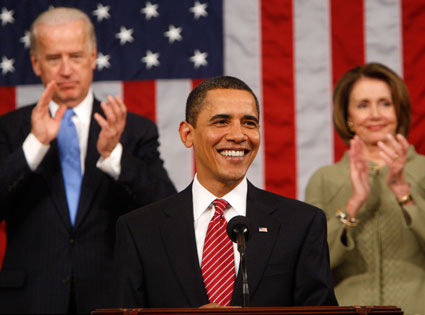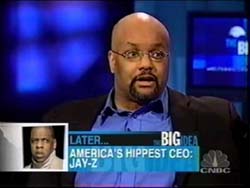
To join the Your Black World Coalition, please click here
The NCAA Explains its Behavior
By Dr. Boyce Watkins
www.BoyceWatkins.com
In its effort to impact public perception and in response to those across the nation who’ve critiqued the NCAA’s revenue generation at the expense of college athletes and their families, the league has put something on its website entitled: Behind the Blue Disk: Why Don't You Pay Student-Athletes?
I have provided the statement made by the NCAA, with a “between the lines” short response, explaining why athletes in revenue generating sports deserve to have the same rights the rest of us enjoy as Americans. The arguments used by the NCAA to justify its behavior are eerily similar to those used during slavery, in which the high profitability of the cotton trade led those in power to presume that it was also O.K. to strip other human beings of their labor rights. Many years ago, some said that slaves were better off under the control of their masters, and that they were actually protecting African Americans by earning excessive profit from their hard work. Like slavery’s Underground Railroad (which was illegal at the time), coaches and others are sometimes caught giving payments to players beneath the table so these athletes can help their families. The arguments made by the NCAA can get a bit silly at times, since they are stuck with the difficult task of defending that which cannot be defended. Even Walter Byers, former Executive Director of the NCAA said “the federal government should require deregulation of a monopoly business operated by not-for-profit institutions contracting together to achieve maximum financial returns.” Translation: the NCAA is earning a great deal of money by rigging the economic game in their favor and Congress has been allowing them to do it. Byers, and many others are saying that the families of athletes deserve to make a living from sports, just like the coaches.
The NCAA’s statement (and my response) is below. Enjoy!
Dr. Boyce Watkins
www.BoyceWatkins.com
This is America! Student-athletes should get paid!
Critics often cite capitalism as a reason for paying student-athletes. But not everything that looks like capitalism is capitalism.
Higher education and intercollegiate athletics generate significant revenues, but the revenues don’t go to making a profit for owners or shareholders - or campuses or college sports, for that matter. The revenues go to providing increased opportunities for all student-athletes.
Rebuttal: As I mentioned earlier, slaveholders justified taking away labor rights of slaves because they argued that they were using the revenues of slavery to feed the slaves and clothe them. They neglected to mention that they were making many individuals wealthy in the process. Today, the NCAA is a non-profit organization, granted. But coaches, commentators, corporations and administrators earn millions from this non-profit organization every year. Finally, the NCAA earns more revenue during March Madness than all the other professional sports leagues, including the NBA, NFL, NHL and MLB. I am a Finance Professor, and I know capitalism when I see it.
Nonetheless, student-athletes are doing the work. They should get paid!
This argument falls apart right from the start because student-athletes are students first who have the opportunity to compete athletically. They are not university employees. As student-athletes, they are among the fortunate few that are able to continue their development in both the competitive arena and the classroom.
Rebuttal: I have seen this system up close for the past 15 years as a professor at 4 universities with major athletics programs. Student athletes are NOT students first, especially those in basketball and football. Their scholarships are taken away if they do not perform on the field, they are put in dorms away from the other students, they are expected to miss class to play in games, and their time is so taxed that they barely have a chance to do anything else. The NCAA hardly runs a “weekend warrior” operation, since athletes bring in more money than nearly any other employee campus.
I’m not buying it. Big-time athletic programs are awash in money.
Wrong! More than 90 percent of NCAA schools consistently lose money on their athletics programs. Most are forced to rely on alternative funding to even field teams. Paying players would only make the problem worse.
Rebuttal: Any school that is not making money from college sports should not be paying its head coach more than $100,000 per year. Instead, many schools sign deals for as much as $6.5 million per year for football and basketball coaches. It is a bit nonsensical to attempt to argue that you are wallowing in poverty when your organization is creating millionaire television commentators, coaches, and athletic directors every year. Additionally, schools don’t have to pay athletes at all. They should only allow athletes to have the same labor rights as coaches and other Americans. The athlete can then earn money from his/her own image from sources off campus. You see? With just a little bit of intelligence, we can assuage the NCAA’s concerns, as they argue that they are nothing more than harmless paupers barely squeezing by.
Why not eliminate the non-revenue sports and pay the football and men’s basketball players?
Nice try but there is no pot of gold at the end of this rainbow either. In Division I, only 30 percent of football and 26 percent of men’s basketball programs make money. For the pure capitalist, that means more than two out of three football teams and three out of four basketball teams would be in jeopardy because they are losing money. But let’s get beyond the economics. The NCAA is about increasing participation opportunities for all student-athletes, not diminishing them. The benefits of participating in college sports are too valuable to limit to a chosen few in two sports.
Rebuttal: Even a company that is not making a profit should have to fairly compensate its employees. Additionally, many of the universities who claim to be broke are signing multimillion dollar deals with their coaches (the University of Kentucky just gave its basketball coach $6 million dollars to quit). If you were to simply redistribute the revenue that the coach earns, your problem would be solved. Finally, participation for all athletes in non-revenue sports is certainly important, and it is ridiculous to believe that other sports would not exist without the blatant violation of student athlete labor rights. High schools operate sports programs on far less than the billions earned by the NCAA.
OK. But aren’t student-athletes being exploited?
Absolutely not. Our ground-breaking studies show most current and former student-athletes appreciate the educational and athletics opportunities that college presents. In general, student-athletes graduate at a higher rate than the general student body. They do so while simultaneously playing the sport they love and preparing for their future as a pro in something other than sports. And let us not forget the average full-ride scholarship at a public school is worth more than $100,000, no small sum by any means. In total, Division I and II institutions cumulatively award $1.5 billion in athletics scholarships each year. Division III does not award athletics aid.
Rebuttal: I am not sure what the NCAA is referring to with their “groundbreaking study” (I hope it’s not as bad as the CBS infomercial they featured me on last year, which included several millionaire coaches and commentators - Coach K at Duke, Clark Kellogg, Billy Packer - explaining why athletes’ families should be left out of the revenue-generating pool). I also recommend that they do a survey of athletes in revenue-generating sports to determine if they agree with the NCAA’s optimistic assessments of the student athlete experience. The NCAA seems to work very hard to shape the playing field in their favor, as any unbiased survey would show that athletes in revenue generating sports (and their families) would much rather have their labor rights restored. In fact, the NCAA almost never engages in public debates to defend their current system (when I spoke on this issue on CNN, the NCAA refused to put someone on the show to debate me. I speculate that they are nervous about dealing with a Finance Professor and Educator who knows the system and has the ear of African American males).
Does Title IX play a role in this issue?
We’re pretty sure it would. This historic 1972 federal civil rights law has been interpreted to say female student-athletes are to be treated the same as male student-athletes. Although it has never been tested in court, we suspect this same interpretation would apply if colleges started paying either. The penalty for not complying is the loss of federal educational funds, something no college can survive without these days.
Rebuttal: The NCAA does not have to pay anyone. The argument is that they and Congress should stop restricting the labor rights of college athletes. They can do the same for female athletes as well. Hiding behind Title IX simply doesn’t work, since there would be no violation necessary.
Documented benefits of being a student-athlete:
- They enjoy high levels of engagement in academics, athletics, and community
Rebuttal: I’ve dealt with student athletes for the past 15 years. Many of them are tired from practicing constantly, USA Today found that they are steered toward particular academic majors, and they are constantly in fear of disobeying their coaches, even if it is to attend class. Many athletes do not have the sheer joy that the NCAA attempts to present to the American public. This reminds me of pictures of happy slaves my history teacher used to show in class.
- They have very positive feelings about their overall athletics/academic experience
Rebuttal: Again, I recommend having an independent body do a survey of former student athletes in revenue-generating sports to determine if their experience was as enjoyable as the NCAA proclaims it to be. Just ask the family of Curtis Williams, a football player at The University of Washington, who was paralyzed in a game and died a few months later. The NCAA initially refused to pay for his home care and then later refused to pay his death benefit, even though he was paralyzed on the football field. I would not consider this to be a positive athletic experience.
- They attribute learning invaluable life skills to being a student-athlete
- They are more likely to earn similar or higher wages after college than non-student-athletes
Rebuttal: I do not disagree with either of these assessments, since I enjoyed being an athlete when I was young. However, the idea that someone benefits from something doesn’t imply that you have the right to steal their labor rights. Those forced into slavery gained tremendous physical strength from picking cotton all day, but that doesn’t justify the master’s criminal behavior. The bottom line is this: The NCAA has colluded with Congress to strip fundamental rights from a select group of individuals through a nexus of rules and cartels with serious threat of punishment to those in violation of cartel policies. This sort of behavior would be illegal in nearly any other industry in America, but it is acceptable to the rest of us because most of the players are Black.
So, as the NCAA argues that such abhorrent behavior is actually helping college athletes, we must remember that a thief who vacuums your carpet is still the guy who broke into your house. There is no getting around accountability.
Dr. Boyce Watkins is a Finance Professor at Syracuse University and author of “What if George Bush were a Black Man?” For more information, please visit www.BoyceWatkins.com.




















